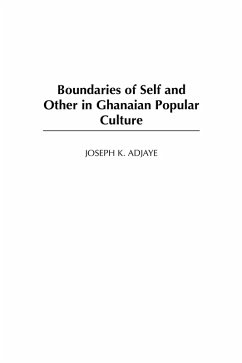Rituals are among the most enduring aspects of the African cultural landscape. They appear to exist outside of time, eternal and unchanging. Joseph Adjaye argues that while rituals may seem to be static, in reality, they are dynamic and changing. Through intense analysis of child naming ceremonies, libations, puberty initiation rights, funerals and two major Ghanaian festivals, Adjaye explores the interplay between ritual and audience interaction and participation. By so doing, he shows the many ways rituals have provided Ghanaians with a means to conceptualize and change their present and shape their future. In other words, rituals help individuals escape the boundaries of self by promoting a sense of collective purpose and agency. This book will appeal to not only Africanists, but to readers interested in the roles rituals play in their own lives and the ways that rituals encourage socially transforming initiatives.
Bitte wählen Sie Ihr Anliegen aus.
Rechnungen
Retourenschein anfordern
Bestellstatus
Storno









